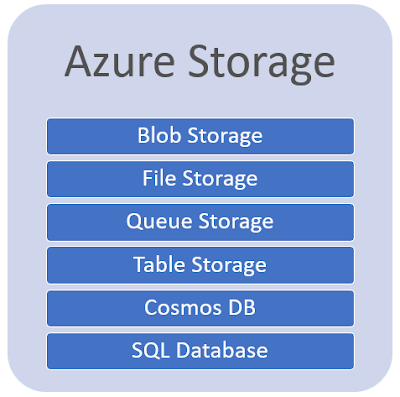Cloud Storage is a model of computer data storage in which the digital data is stored in logical pools. The physical storage spans multiple servers at different locations, and the physical environment is typically owned and managed by a cloud provider. These cloud storage providers are responsible for keeping the data available and accessible, and the physical environment protected and running. People and organizations buy or lease storage capacity from the providers to store user, organization, or application data.
Most devices and applications read and/or write data. Here are some examples:
- Buying a movie ticket online
- Looking up the price of an online item
- Taking a picture
- Sending an email
- Leaving a voicemail
In all of these cases, data is either read or written. The type of data and how it's stored can be different in each of these cases.
Cloud providers typically offer services that can handle all of these types of data. For example, if you wanted to store text or a movie clip, you could use a file on disk. If you had a set of relationships such as an address book, you could take a more structured approach like using a database.
The advantage of using cloud-based data storage is you can scale to meet your needs. If you find that you need more space to store your movie clips, you can pay a little more and add to your available space. In some cases, the storage can even expand and contract automatically - so you pay for exactly what you need at any given point in time.
Microsoft Azure provides following types of storage services,
- File Storage
- Queue Storage
- Table Storage
- Cosmos DB
- SQL Database
 |
| Azure Storage Services |